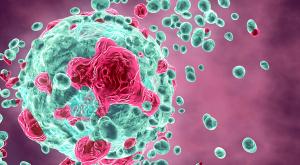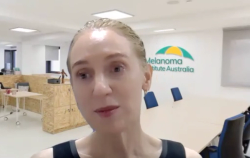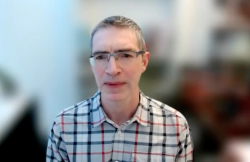Understanding Adjuvant and Neoadjuvant Melanoma Treatment
Depending on the disease specifics, patients with melanoma may undergo pre- or post-surgical therapies.
Skin melanoma, one of the most serious forms of skin cancer, poses a significant threat to global health. Most patients present with early-stage disease (skin, lymph node, or skin with lymph node involving). In recent years, several advancements in treatment approaches of early-stage disease have brought hope for those battling this aggressive disease.
Among these innovations are improved surgical approaches, adjuvant and neoadjuvant therapies.
Understanding Skin Melanoma
Before delving into treatment of early-stage melanoma, it is crucial to understand skin melanoma itself. Melanoma arises from the pigment-producing cells (melanocytes) in the skin, and it can appear as a new mole or develop from or in an existing mole.
Prolonged exposure to ultraviolet (UV) radiation from the sun or tanning beds is a leading risk factor for developing melanoma. Other risk factors for melanoma include light skin complexion, family history of melanoma/skin cancer and the presence of many moles on skin. Detecting melanoma early is key for successful outcomes, as advanced stages of the disease are more challenging to manage.
What Is Adjuvant Treatment?
Melanoma diagnosis begins with biopsy of suspicious area of skin, usually done by a dermatologist. Subsequently, a surgical oncologist performs a “cancer surgery” with adequate margins that is usually determined by how deep melanoma had invaded into skin. Once certain depth of invasion is found, lymph node evaluation by a procedure called sentinel lymph node biopsy may be necessary. Upon completion of these procedure, a final pathological stage of melanoma is determined; this allows medical oncologist to assess prognosis and recommend treatments to reduce risk of recurrence.
These treatments are known as adjuvant therapies. Currently, immunotherapy and targeted therapy are commonly used in early-stage melanoma to reduce risk of recurrences. Clinical trials have shown that patients who received adjuvant therapy had better outcomes compared to those who underwent surgery alone. Furthermore, adjuvant treatments can potentially reduce the need for additional surgeries, making it an essential component in comprehensive melanoma care.
Types of Adjuvant Therapies in Melanoma
Immunotherapy: Immunotherapy has shifted the paradigm in cancer treatment in many different types of cancers by harnessing our body's immune system to recognize and eliminate cancer cells. Immune checkpoints are molecules that our body’s immune system uses for its own regulation and appropriate functioning. Cancer cells, however, take advantage of these regulatory pathways to avoid immune recognition, leading to unchecked growth. Development of blocking antibodies toward these immune checkpoints enhances the activity of T cells which then recognize and target cancer cells more effectively. Engineered antibodies knowns as checkpoint inhibitors, such as anti-PD-1 and anti-CTLA-4 antibodies, reinvigorate the immune system to recognize melanoma thus have shown amazing activity in controlling it.
Opdivo (nivolumab) and Keytruda (pembrolizumab) target PD-1 and both are approved for stage 2b-4, whereas Yervoy (ipilimumab) targets CTLA-4, and is approved for node-positive disease in the adjuvant setting. Most used adjuvant therapies (Opdivo, Keytruda) given for one year after surgery have shown to carry low toxicity burden while being very effective decreasing recurrences. Ongoing trials look to add to this approach by making cancer vaccine that are given in combination with immunotherapy, to patient with high-risk early-stage melanoma.
Targeted Therapy: Roughly, 40-45% of skin melanoma harbor a mutation, called BRAF (BRAF V600 E/K most common) mutation. This mutation allows uncontrolled growth and spread of melanoma. Patients whose melanoma has spread to lymph nodes and who are surgically rendered disease free are candidates for Tafinlar (dabrafenib)/Mekinist (trametinib) given orally in adjuvant setting. This oral combination therapy given for one year after surgery has showed to increase recurrence free survival.
What is Neoadjuvant Treatment?
Patients who have melanoma spread to lymph nodes detectable either on physical exam or radiological scans, carry a significant risk of recurrence. These patients are candidates for medical treatments prior to surgical interventions. These medical treatments are known as neoadjuvant therapies. Underlying scientific thought to this approach is that intact tumor cells in skin and lymph nodes provide a better “learning environment” for immune cell functioning to eradicate melanoma to reduce recurrences. It also allows evaluation of tumor's response to a particular therapy before committing to surgery. Additionally, neoadjuvant therapy can downsize large tumors, making them more amenable to surgical removal.
Multiple clinical trials have shown this approach to be very effective. Clinical trial SWOG S1801 has been practice changing by showing advantage of neoadjuvant immunotherapy over adjuvant immunotherapy in lymph node-positive melanoma. In current practice, most of clinical lymph node-positive skin melanomas are treated with this approach. Neoadjuvant therapies mirror those used in adjuvant treatment, with immunotherapy and targeted therapy (used less commonly) being the primary options.
Conclusion
The emergence of adjuvant and neoadjuvant treatments has led to significant changes in ways skin melanoma is treated. Ultimate hope of either of these approaches is to prevent melanoma recurrences and reduce loss of quantity/quality of life.
For more news on cancer updates, research and education, don’t forget to subscribe to CURE®’s newsletters here.
Related Content
 Experts Give an Overview of the Latest Melanoma Therapies
Experts Give an Overview of the Latest Melanoma TherapiesFebruary 15th 2024
 What’s the Plan for Patients With Melanoma After Surgery?
What’s the Plan for Patients With Melanoma After Surgery?January 10th 2024
 Why Melanoma May Need Treatment After Surgery
Why Melanoma May Need Treatment After SurgeryNovember 15th 2023
 Solid Cancer Approvals from Summer 2023
Solid Cancer Approvals from Summer 2023September 1st 2023
 Types of Skin Cancer and Their Treatments
Types of Skin Cancer and Their TreatmentsAugust 10th 2023
View additional resources on CureToday.com




